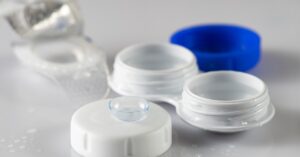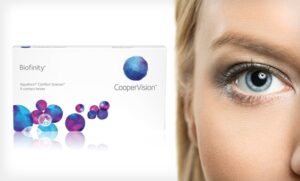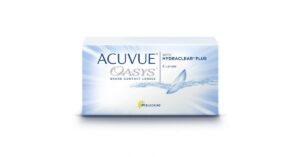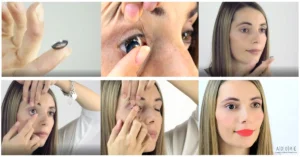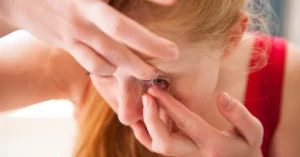Contact Lenses With Dry Eye Syndrome
Contact lenses are a great way to correct vision, but it is essential to follow proper care and usage guidelines to ensure that they do not cause any harm to your eyes. For individuals suffering from dry eye syndrome, it may be a bit tricky to wear contact lenses. However, there are ways to manage dry eye symptoms while wearing contacts, making it possible for some individuals to enjoy the benefits of wearing contact lenses. In this article, we will explore the various factors to consider before wearing contact lenses with dry eye syndrome.
What is Dry Eye Syndrome?
Dry eye syndrome is a common condition characterized by an insufficient amount of tears or poor-quality tears that fail to lubricate the eyes adequately. Symptoms include dryness, itching, burning, redness, and excessive tearing. It can occur due to various reasons such as aging, medication side effects, environmental factors, or underlying medical conditions such as arthritis, thyroid problems, and diabetes.
Can Individuals with Dry Eye Syndrome Wear Contact Lenses?
Yes, individuals with dry eye syndrome can wear contact lenses, but they should take extra precautions while doing so. Contact lenses can further aggravate dry eye symptoms by causing irritation, redness, and discomfort. The lenses can stick to the eyes, making it difficult to remove them, and in severe cases, can cause corneal abrasions.
However, the good news is that with proper eye care and maintenance, individuals with dry eye syndrome can wear contact lenses comfortably.
Factors to Consider Before Wearing Contact Lenses with Dry Eye Syndrome
If you have dry eye syndrome, it is essential to consider several factors before wearing contact lenses. Here are some things to keep in mind:
-
- Consult with your optometrist
Before wearing contact lenses, it is crucial to consult with your optometrist. They can assess the severity of your dry eye symptoms during the contact lens exam and determine whether contact lenses are a suitable option for you. They can also recommend specific types of contact lenses that are better for individuals with dry eyes and provide valuable advice on how to care for your lenses.
-
- Choose the right type of contact lens
Not all contact lenses are suitable for individuals with dry eye syndrome. Daily disposable contact lenses and silicone hydrogel lenses are often recommended because they retain moisture better than other types of lenses. These lenses are also less prone to deposit buildup, which can cause irritation.
-
- Opt for a lower water-content lens
Contact lenses with a lower water content can help reduce dry eye symptoms. Lenses with a higher water content tend to absorb moisture from the tears, making them drier, while lenses with a lower water content can retain moisture better. Optometrists often recommend lenses with a water content of 40% or less for individuals with dry eye syndrome.
-
- Use eye drops
Using eye drops can help relieve dry eye symptoms, allowing for more comfortable contact lens wear. Artificial tears are a popular choice amongst individuals with dry eyes. These drops work by lubricating the eyes, reducing redness, and providing relief from dryness. However, it is essential to consult with your optometrist before using any eye drop, as not all eye drops are suitable for individuals wearing contact lenses.
-
- Clean and care for your contact lenses
Proper contact lens care and maintenance are crucial for individuals with dry eye syndrome. It is essential to follow the manufacturer’s instructions, as well as your optometrist’s recommendations, for cleaning, disinfecting, and storing your lenses. Avoid using tap water or saliva to clean your lenses, as this can lead to eye infections. Always use a recommended contact lens solution to clean and disinfect your lenses.
-
- Avoid wearing contact lenses for extended periods
Wearing contact lenses for too long can exacerbate dry eye symptoms. It is essential to follow the recommended wearing schedule for your contact lenses. Daily disposable lenses are often the best option for individuals with dry eyes, as they are only worn for a day and discarded. If you wear reusable lenses, it is crucial to follow the recommended replacement schedule and take breaks from wearing them when necessary.
-
- Avoid wearing contact lenses in dusty or dry environments
Dusty or dry environments can exacerbate dry eye symptoms. It is best to avoid wearing contact lenses in such environments. If you must wear contact lenses, it is recommended to use lubricating eye drops regularly to keep your eyes moist and comfortable.
In conclusion, wearing contact lenses with dry eye syndrome is possible with proper care and maintenance. It is important to consult with your optometrist before wearing contact lenses, choose the right type of contact lens, use eye drops, clean and care for your lenses properly, avoid wearing lenses for extended periods, and avoid wearing lenses in dusty or dry environments. By following these guidelines, individuals with dry eye syndrome can enjoy the benefits of wearing contact lenses comfortably









